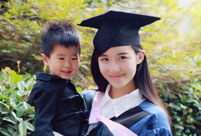 Post-90s beauty boxer grapples four men
Post-90s beauty boxer grapples four men
 3,000-year-old tea town through lenses
3,000-year-old tea town through lenses
 22 archaeological sites along Silk Road in China
22 archaeological sites along Silk Road in China
 Football babies, Samba dancers embrace 'World Cup'
Football babies, Samba dancers embrace 'World Cup'
 Beautiful scenery along China’s Grand Canal
Beautiful scenery along China’s Grand Canal
 High speed train attendants receive training in Chongqing
High speed train attendants receive training in Chongqing
 Rare rainbow clouds seen in Fujian
Rare rainbow clouds seen in Fujian
 Small bracelet going global
Small bracelet going global
 Aerial Photography: Amazing Tianshan Mountains
Aerial Photography: Amazing Tianshan Mountains
 'Animals' in 2014 World Cup
'Animals' in 2014 World Cup
Fifteen senior officials at ministerial-level and above have been investigated on allegations of corruption in the first half of this year. The officials, 13 at ministerial-level and two at vice national level, were probed for suspected "grave violations of discipline and law," according to the Central Commission for Discipline Inspection of the Communist Party of China, the country's top anti-graft watchdog.
The latest case came on Monday, when Xu Caihou, former vice-chairman of China's Central Military Commission, was expelled from the Party on bribery allegations. He is a former member of the top-ruling Political Bureau of the CPC Central Committee. There are 25 members in the bureau.
Apart from Xu, another vice national level official to come under investigation is Su Rong, 66, former vice-chairman of the Chinese People's Political Consultative Conference National Committee. He was removed from his post at the top advisory body on June 25, 11 days after the CCDI began its probe.
On Friday, Wan Qingliang, Party chief of Guangzhou, the capital of Guangdong province, was announced as being under investigation for corruption. Wan, 50, was deemed a promising official given the fact he was the youngest mayor of Guangzhou city when he got the post at the age of 46.
Ji Wenlin, 48, former vice-governor of Hainan province, is the youngest of the senior officials to come under investigation. He worked as a secretary for a senior official for years before taking the vice-governor post on Jan 31, 2013.
Yang Baohua, 67, former vice- chairman of the political advisory body of Hunan province, is the eldest of the officials under suspicion. He had already been retired from his post for two years when the CCDI announced its investigation of him on May 26.
As of Monday, the CCDI has publicized 314 cases this year in which officials from government bodies, public institutes and State-owned enterprises have been investigated on allegations of corruption.
Those cases involved at least 40 senior managers of SOEs, mostly from monopoly industries such as energy, telecommunications and electricity. Five officials from different levels of the State-owned Assets Supervision and Administration Commission, which is in charge of SOE regulations, were also investigated.
Twenty officials from universities and colleges have been probed, mostly on bribery allegations.
The anti-graft authorities have also enhanced supervision of disciplinary officials, and six officials from anti-graft agencies have been investigated. Wei Jian, director of the No 4 discipline inspection office of the CCDI, who was investigated on May 9, was the highest ranking among those officials.
At least five officials from the press have been also been investigated in the past six months. Among them, the investigation of Guo Zhenxi, director general of China Central Television's finance and economics channel, was of great concern to the public due to the powerful influence of the CCTV.
Zhu Shuzhen, a professor of clean-governance research with Renmin University of China, said more senior officials are likely to be investigated as the top anti-graft watchdog has collected a large number of whistle-blowing tips through dispatching inspectors to local governments.
"Fighting corrupt senior officials is key to anti-graft work since they have overwhelmingly large power and their corrupt activities always result in huge losses of State funds," she said.
In the first half of last year, the CCDI investigated five ministerial-level officials. Anti-graft efforts were strengthened in November 2013 after the Third Plenary Session of the CPC Central Committee, when a reform package was agreed upon by top officials.
 Female master poses for graduation photos with son
Female master poses for graduation photos with son Silk Road, China's Grand Canal listed as World Heritage Sites
Silk Road, China's Grand Canal listed as World Heritage Sites PKU students imitate famous paintings in real-person photos
PKU students imitate famous paintings in real-person photos Chinese 'Slumdog Millionaire'
Chinese 'Slumdog Millionaire' Puzhehei: land of idyllic beauty
Puzhehei: land of idyllic beauty Stewardesses in Brazilian soccer jerseys
Stewardesses in Brazilian soccer jerseys Chinese navy fleet visits Cape Town, South Africa
Chinese navy fleet visits Cape Town, South Africa PLA naval cadets toss their hats at graduation ceremony
PLA naval cadets toss their hats at graduation ceremony Graduation photo ideas: reliable alumnus and happy alumna
Graduation photo ideas: reliable alumnus and happy alumna Islands in S. China Sea better shown on new vertical atlas of China
Islands in S. China Sea better shown on new vertical atlas of China Girl takes father’s portrait to travel the world
Girl takes father’s portrait to travel the world Images of Xi'an: Part one
Images of Xi'an: Part one In Pictures: Female fans of World Cup
In Pictures: Female fans of World Cup Top 20 hottest women in the world in 2014
Top 20 hottest women in the world in 2014  China's top 10 representative architectures
China's top 10 representative architecturesDay|Week|Month